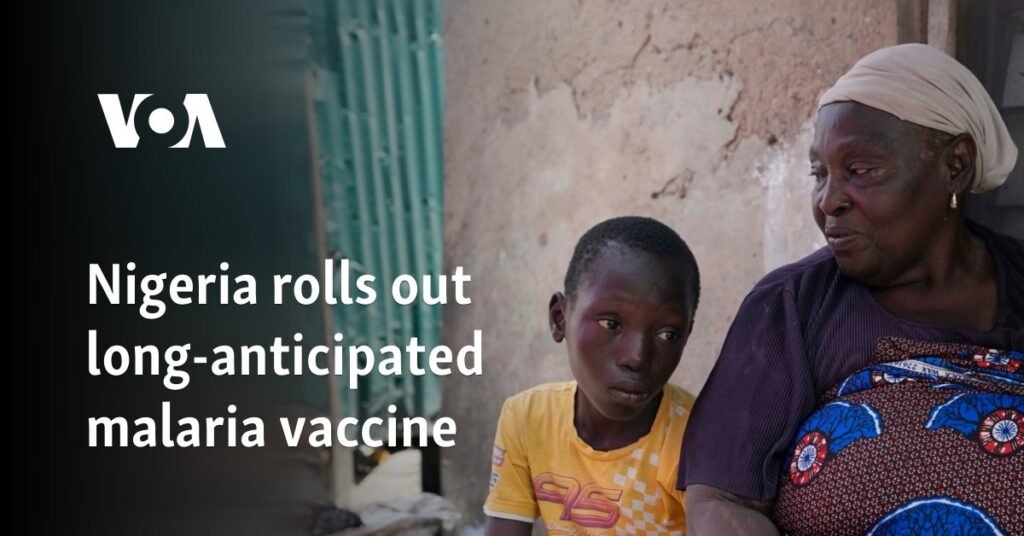Abuja, Nigeria —
Nigeria this week officially launched a malaria vaccination campaign with a focus on high-risk states to protect millions of children from the deadly disease.
The first 846,000 doses of the R21 malaria vaccine arrived in Abuja, Nigeria on Thursday, marking a milestone in malaria eradication efforts. According to the World Health Organization, the country accounts for about 27% of the world’s malaria cases. In 2022, nearly 67 million people were infected and nearly 200,000 deaths were recorded, with approximately 80% of the deaths being children under 5 years old.
Dr. Mui Aina, director general of the National Primary Health Care Development Agency, said the initial rollout would prioritize high-risk areas.
“In this first batch, we expect another 140,000 or so people to receive one million doses. Every child, every person who gets vaccinated, will need to get two doses. So, We have prioritized Kebbi and Bayelsa, which are the most heavily loaded locations in the country, as we know that number is limited.”
The government will pay part of the cost of the vaccine, with the rest being funded by global vaccine organization Gavi and international partners.
Health Minister Mohamed Pate stressed that the vaccine will be administered free of charge to those vaccinated.
“These vaccines are free to the public, but they cost resources,” he said.
Not everyone can afford the vaccine, Pate said.
“Poor children in rural areas may not have access to them,” he said. “We are therefore prioritizing public financing in this regard and are grateful to our partners for contributing to this.”
Nigeria has improved vaccine logistics to hard-to-reach areas.
UNICEF Health Director in Nigeria, Dr. Eduardo Selades, expressed confidence in Nigeria’s logistical capabilities.
“Transportation and storage are key issues,” he said, adding: “How can we ensure the integrity of the cold chain necessary to keep vaccines safe and effective? “We have the confidence of knowing that our vaccines are being stored safely.” I have the ability. ”
Malaria remains a complex challenge that requires a combination of strategies including mosquito control, improved access to health care, and vaccine monitoring.
Malaria Elimination Strategic Advisor Olugbenga Mokuoru said the vaccine complements traditional measures such as bed nets and treatments and provides additional protection for children.
“We know that no single tool can provide a 100% solution, which is why we are still talking about a combination of tools. But layering a vaccine on top of that is very …with the rollout of this vaccine.” We plan to conduct efficacy studies to document relapse rates during vaccination. ”
WHO has approved the RTS, S, R21 vaccine, and R21 has shown 77% efficacy in trials. Other African countries, including Uganda and Burkina Faso, have begun distributing vaccines, reflecting the continent’s efforts to combat malaria.
Experts say the success of malaria control depends on continued engagement with local leaders and parents to ensure children are fully vaccinated.

